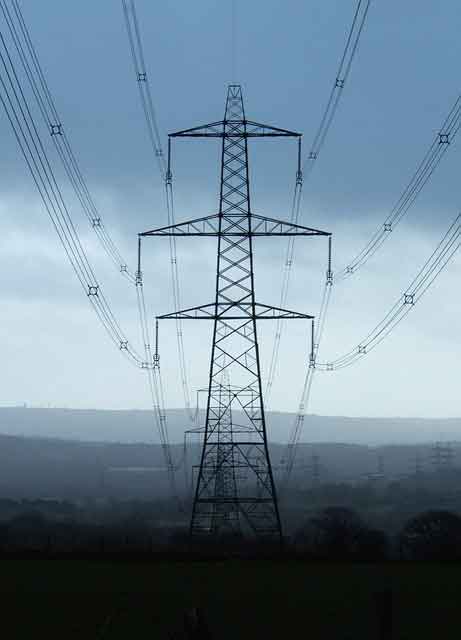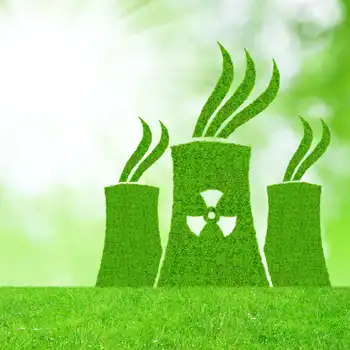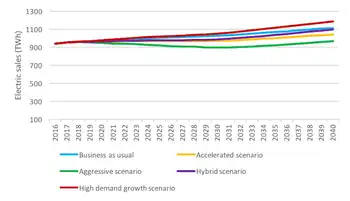President urges use of alternate energy sources to end dependence on Middle East
WASHINGTON, D.C. - George W. Bush is vowing to break the American addiction to oil, offering up a series of proposals to revolutionize the way the country heats its homes and businesses and powers its cars.
In his fifth State of the Union address delivered to a prime-time television audience, the U.S. president unveiled a goal of reducing oil imports from the Middle East by 75 per cent by 2025.
In a speech his aides billed as a buoyant and optimistic look ahead as the country begins the mid-term election campaign, Bush played it safe, a nod to his diminished political capital and Republican fears that any radical proposals could further erode party support heading into next November's vote.
But he said foreign oil dependency is a serious impediment to American competitiveness.
"We have a serious problem," Bush said. "America is addicted to oil, which is often imported from unstable parts of the world.
"By applying the talent and technology of America, this country can dramatically improve our environment, move beyond a petroleum-based economy and make our dependence on Middle Eastern oil a thing of the past."
Although much of what Bush outlined last night is already in an energy bill passed last summer, he offered more initiatives in his speech as oil reaches $70 (U.S.) per barrel.
He did not call on Americans to conserve energy by driving less, however, and by focusing on Middle East imports, he was dealing with only 20 per cent of U.S. imports. The country imports much more oil from Canada and Mexico.
Bush said he would launch an Advanced Energy Initiative, backed by a 22-per cent increase in clean-energy research, including investment in zero-emission coal-fired plants, solar and wind technologies and "clean, safe" nuclear energy.
He also said he will increase research in batteries for hybrid and electric cars and pollution-free cars that run on hydrogen and ramp up investment in ethanol research in a bid to make a new type of ethanol available in six years.
Bush has called for a lessening of U.S. dependence on foreign oil in the past, as have a series of U.S. presidents from both parties dating back three decades.
"Americans are using more energy, paying more for it, and are more dependent on foreign oil than ever before," said newly-installed Virginia Governor Tim Kaine, who delivered the Democratic rebuttal.
Kaine said Democrats want oil companies to return some of their record profits to properly fund research into alternative means of delivering energy.
Nancy Pelosi, the Democratic leader in the House of Representatives, said Bush was incapable of changing U.S. dependence on foreign oil.
"They're captives of the oil and gas industry," she said of Bush and Vice-President Dick Cheney.
The White House said there are an estimated 250 million vehicles on U.S. highways, and Americans will purchase more than 17 million vehicles this year. It estimated it would take 15 years to switch America's automobiles over to more fuel-efficient technologies.
In a briefing for reporters, White House communications director Dan Bartlett called the energy initiative "a game changer.
"We do believe we're on the cusp of something really different when it comes to dealing once and for all for our dependence upon foreign sources of oil," he said.
Bush took to the podium for his address as his approval ratings wallowed at levels known to only one incumbent president before him, Richard Nixon in the early 1970s.
The war in Iraq appears intractable and he endured a 2005 in which he faced withering criticism over his response to Hurricane Katrina, endured the loss of a top aide to his vice-president in the CIA leak investigation, watched his party lose credibility with Americans over a widening corruption scandal and was forced to defend himself against charges he had authorized illegal wiretapping of Americans.
Minutes before he spoke, anti-war protestor Cindy Sheehan, whose son Casey was killed in Iraq, was arrested on Capitol Hill by police. Police told Associated Press she was thrown out because she was wearing an anti-war T-shirt and had been told in advance not to do so.
There had once been speculation Bush would use the speech to announce a significant troop drawdown in Iraq, but that proved premature.
"Fellow citizens, we are in this fight to win, and we are winning," he said of a war about to hit its third anniversary.
He said troop withdrawals will be decided by U.S. commanders on the ground, not legislators in Washington, and in a message aimed at Democratic critics, he said "second guessing is not a strategy."
"A sudden withdrawal of our forces from Iraq would abandon our Iraqi allies to death and prison, put men like bin Laden and Zarqawi in charge of a strategic country and show that a pledge from America means little," he said, referring to Al Qaeda leaders Osama bin Laden and Abu Musab al-Zarqawi.
Bush also drew loud Republican applause when he defended his wiretapping program.
"If there are people inside our country who are talking with Al Qaeda, we want to know about it, because we will not sit back and wait to be hit again.
He also pledged to continue to rally world support to confront the nuclear threat posed by Iran, and vowed to secure his country's borders, a message directed southward, but one that should be heeded by Canadians.
In a prime seat watching the speech was the newly confirmed Supreme Court Justice Samuel Alito. He was confirmed by the full Senate by a count of 58-42 in a vote which hewed almost precisely along party lines.
Related News

Trump's Oil Policies Spark Shift in Wall Street's Energy Strategy
NEW YORK - The global energy finance sector, worth a staggering $1.4 trillion, is undergoing a significant transformation, largely due to former President Donald Trump's renewed support for the oil, gas, and coal industries. Wall Street, which had previously aligned itself with global climate initiatives and net-zero goals, is now reassessing its strategy and pivoting toward a more fossil-fuel-friendly stance.
This shift represents a major change from the earlier stance, where many of the largest U.S. banks and financial institutions took a firm stance on decarbonization, including limiting their exposure to fossil-fuel projects. Just a few years ago, these institutions…




